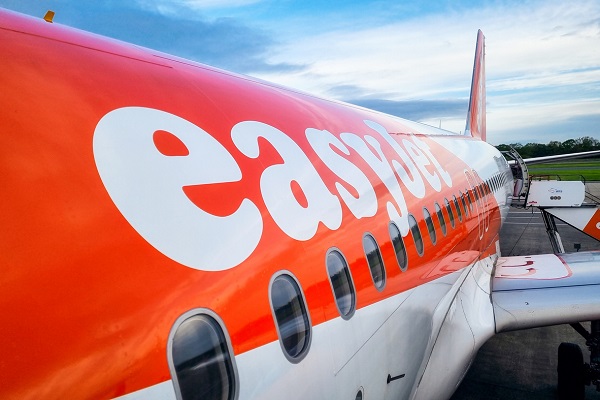Bullish easyJet in record-breaking mood after best ever Q3
20th July 2023 08:00
by Richard Hunter from interactive investor
Its shares have maintained altitude for the past six months, and now strong demand from holidaymakers paying higher prices has boosted profits. Our head of markets explains what these Q3 results mean for investors.

It is difficult to avoid the conclusion from these third-quarter numbers that, operationally and financially, budget airline easyJet (LSE:EZJ) is flying.
Airlines have desperately been trying to reverse the ravages which the pandemic wrought, and persistent customer demand has helped this target. For easyJet, there are additional factors at play on the revenue line which have given the group additional lift.
- Learn more: SIPP Portfolio Ideas | How SIPPs Work | Transfer a SIPP
Overall revenues rose by 34% in the three months ended 30 June, underpinned by a healthy 30% from passengers. However, its other lines are now making a notable difference to the overall picture. Ancillary revenues, which include the likes of customer payments for personally allocated seats, baggage and food, rose by 26%. This is something which the company has focused on more recently, and the ancillary yield per passenger is 87% ahead of the third quarter of 2019, just prior to the pandemic.
In addition, easyJet holidays saw revenue growth of 104% and contributed £49 million of pre-tax profit. The group is now forecasting a contribution of over £100 million for the full year and, while these revenues currently account for just 10% of the overall figure, the launch of this package has clearly come at the right time, playing into the minds and wallets of cost-conscious consumers.
The other key metrics are also holding up strongly. A load factor of 90% means little is going to waste, helped along by passenger growth of 7%, while revenue per seat increased by 23% over the quarter and the ticket yield per passenger by 22%.
At the same time, there was a marginal reduction of 2% in the cost per seat excluding fuel, all of which has led to a record pre-tax profit for the third quarter of £203 million, which compares with a loss of £114 million in the corresponding period last year. In addition, the group has retired £1.2 billion of debt this year, most notably resulting in a net cash position currently of £300 million, as compared to net debt of £200 million this time last year.
In terms of outlook, easyJet is equally buoyant, expecting another record profit in Q4 as revenue per seat increases by 10%, with an additional 15% capacity being arranged to meet the needs of strong winter demand. As things currently stand, this momentum should carry over to the first quarter of the new financial year.
- UK equity market valuations at ‘embarrassing’ levels
- Sector Screener: three travel & leisure shares with long-term appeal
- Clouds begin to clear at easyJet
As ever, there are potential flies in the ointment, not least of which is the current sector challenges of constrained air space and Air Traffic Control disruptions. The resilience of the consumer had also been a concern given the parlous economic backdrop in the UK, but for the moment there are few signs of holidays being sacrificed come what may.
easyJet is clearly on a strong flight path, but the share price recovery still has far to go. Despite a hike of 26% over the last year, as compared to a decline of 0.4% for the wider FTSE250, the shares remain down by 24% over the last two years and by 60% from the levels leading into the pandemic, when the share price was nudging £13.
This latest update should provide significant promise on more immediate prospects, with the market consensus of the shares as a 'strong hold' quite likely to come under upward pressure.
These articles are provided for information purposes only. Occasionally, an opinion about whether to buy or sell a specific investment may be provided by third parties. The content is not intended to be a personal recommendation to buy or sell any financial instrument or product, or to adopt any investment strategy as it is not provided based on an assessment of your investing knowledge and experience, your financial situation or your investment objectives. The value of your investments, and the income derived from them, may go down as well as up. You may not get back all the money that you invest. The investments referred to in this article may not be suitable for all investors, and if in doubt, an investor should seek advice from a qualified investment adviser.
Full performance can be found on the company or index summary page on the interactive investor website. Simply click on the company's or index name highlighted in the article.